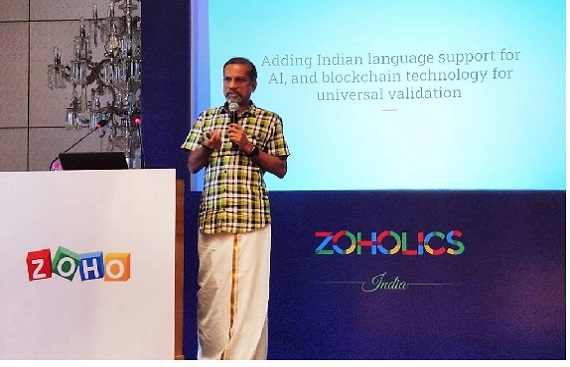Is China Overtaking India in Deep Tech? Sridhar Vembu's Inspiring Message Goes Viral

Over the last decade, the worldwide startup ecosystem has grown beyond imagination, with India and China becoming big players. The kind of startups thriving in both nations, though, is altogether different. Zoho founder Sridhar Vembu recently posted a photo on social media that contrasts the Indian and Chinese startup ecosystems, pointing to a significant difference in orientation. While Indian startups have largely focused on consumer services and lifestyle enhancement, Chinese startups have aggressively invested in deep technology and industrial innovation.
The Current Landscape of Indian Startups
India's startup environment has exploded, especially for consumer-facing digital services. Unicorns have sprouted in spaces such as food delivery, instant grocery platforms, and influencer-based content platforms. While these businesses have created employment and changed urban convenience, critics say they help nothing towards technological innovation and industrial growth in the long run.
- Food Delivery Apps: These companies have transformed the accessibility of food and make huge employment opportunities for delivery workers. But these companies work with thin profit margins, depend on gig workers, and do not contribute much to technology advancements.
- Premium Food and Niche Startups: Most startups specialize in niche foods sold as premium or "healthy" options. While servicing an expanding urban lifestyle-driven demand, they have no role in technological or industrial innovation.
- Instant Grocery Delivery: Hyper-fast delivery platforms have redefined convenience by promising nearly instantaneous deliveries. But they stress supply chains, encourage waste, and encourage consumer procrastination.
- Fantasy Sports Apps: The surge in fantasy sports apps has driven online gaming, but the critics say these apps promote gambling instead of supporting productive economic activity.
- Reels & Influencer Economy: The growth of social media platforms and influencer businesses has led to huge revenue generation. These businesses, however, focus more on entertainment than on technological advancement, which has raised concerns about the erosion of knowledge-based industries.
- The Chinese Startup Model: Deep Tech & Infrastructure Focus China's startup environment, on the other hand, is very much the opposite. While it has consumer-facing companies too, it has chosen to make investments in innovative technology and manufacturing at strategic points in time, leading China to take leadership positions across different sectors.
- Electric Vehicles & Battery Technology: Companies in China, such as BYD, dominate the electric vehicle and battery market worldwide, promoting cleaner energy alternatives and cutting dependence on fossil fuels.
- Semiconductors & AI: China has heavily invested in semiconductor production and artificial intelligence to keep its competitive advantage in the global technology race.
- Robotics & Automation: Chinese startups and companies are leading the way in developing cutting-edge automation, revolutionizing manufacturing processes and building highly efficient production systems.
- Global Logistics & Trade: E-commerce behemoths like Alibaba, Shein, and DJI have developed sprawling global supply chains, shaping international trade and bolstering China's leadership in e-commerce and logistics.
- Deep Tech & Infrastructure: China's steady investment in space technology, high-speed rail lines, and gigawatt-scale renewable energy programs ensures long-term technological and economic stability.
What India Must Do
Sridhar Vembu's post carries a strong message: India has taken huge leaps in areas like fintech, edtech, and consumer services, but the nation needs to turn now to deep tech and self-reliance. The future economic security of India rests in investing in segments like making semiconductors, artificial intelligence, and high-tech infrastructure.
There is increased awareness of the gap, and India's policy makers, investors, and entrepreneurs need to think about creating companies that drive technology frontiers rather than enhancing convenience for consumers. A strategic leap towards deep tech innovation could help India emerge as a front runner in the next wave of worldwide economic development.
About Sridhar Vembu
Sridhar Vembu is a powerful Indian businessman and the founder of Zoho Corporation, previously serving as its CEO. He appears on Forbes' list of India's richest people as of 2024 with an estimated net value of $5.85 billion. His achievement in the tech sector was rewarded by the Padma Shri, India's fourth-highest civilian honor, in 2021.

